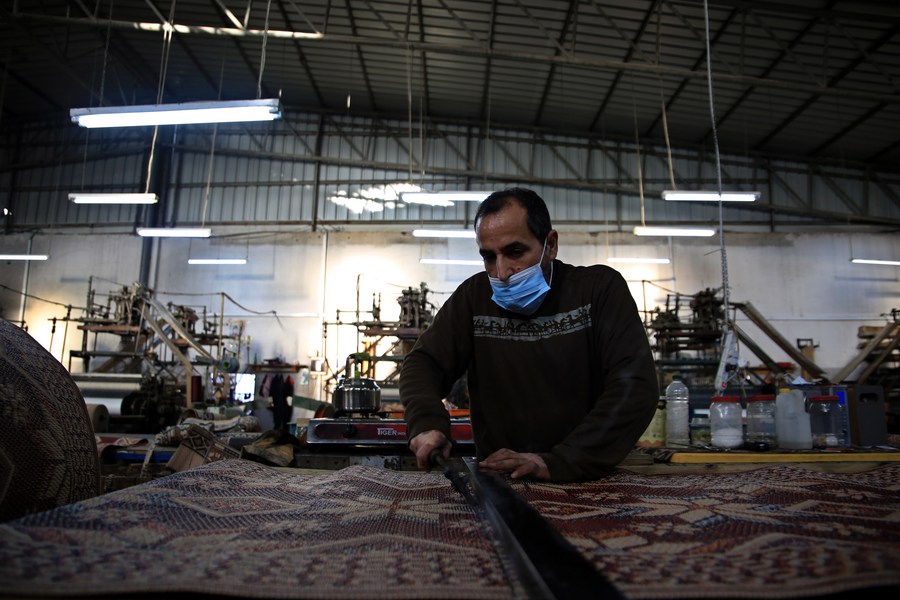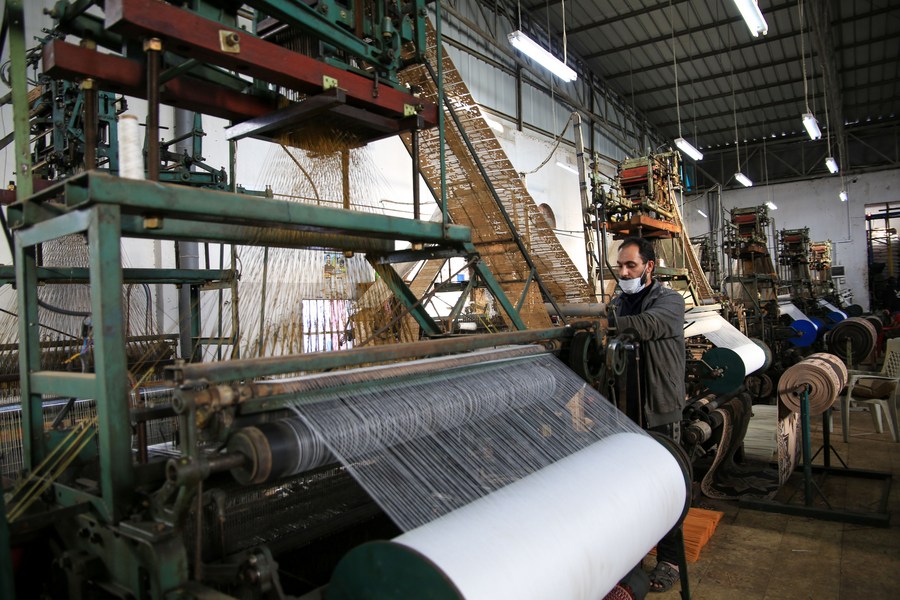Gaza’s Plastic Metamorphosis: A Prelude to Recent Events

They say fashion tells a story, but for Dina Yassin,…
Within the crucible of ceaseless adversity, the spirit of Gaza’s people shone brighter than ever. Their determination had given rise to ingenious solutions to pressing environmental and economic crises, illuminating a path of hope amidst the darkest of times. It’s important to note that this was prior to the devastating events that unfolded on October 7th, 2023.
Gaza had long found itself ensnared in a relentless struggle with its escalating plastic waste dilemma. With a daily influx of a staggering 716 tonnes of household refuse, including an alarming 12 percent comprised of plastic, the challenge of waste management had transformed into an existential battle. Toxic practices like burning and sea disposal had tragically become the unfortunate norm.
Unsung heroes like Maamoun Islayeh had risen to the forefront. Islayeh, the visionary behind a plastic waste sorting and recycling factory nestled in Khan Younis, embarked on this monumental journey in 2006 when livelihood alternatives dwindled to a mere trickle. Originally propelled by economic necessity, Islayeh’s mission underwent a remarkable metamorphosis as he became acutely aware of the environmental cataclysm triggered by inorganic waste.
Today, Islayeh and his dedicated team toiled tirelessly to cleanse and process plastic waste, rendering it ripe for recycling. Their labor not only served as a bulwark shielding the environment but also functioned as a lifeline for numerous individuals, including 53-year-old Ahmed Abu Tair. He took profound pride in contributing to the preservation of their fragile ecosystem.
Remarkably, there were over 20 kindred factories scattered across Gaza, collectively shouldering the herculean burden of the plastic waste scourge while providing the lifeblood of raw materials to local industries. Manufacturers like Falah Ouda, the luminary behind a mat factory, had wholeheartedly embraced sustainability by infusing recycled plastic waste into their production pipelines. Ouda extolled this approach, highlighting its dual benefits—a fortified environment and a bolstered bottom line.
The Ramlawi Plastic Factory in Gaza City stood as an epitome of innovation in the face of insurmountable odds. Confronted with stifling Israeli policies and restrictions on raw materials, factories like Ramlawi had harnessed the transformative power of recycling plastic waste to chart a defiant path. This radical transformation had galvanized a wave of young Palestinians, embarking on an arduous journey to collect and vend plastic materials, injecting economic solace into a region burdened by soaring unemployment rates.

Amidst myriad challenges, including a lack of support from the Palestinian government and the ceaseless disruption caused by power outages, these factories persisted in their relentless march. Their locally sourced recycled plastic products not only offered affordability but also underpinned the region’s economic resurgence.
In a resounding proclamation of sustainability, Hamed Hegazy’s factory had transcended boundaries by metamorphosing plastic waste into exquisite rugs. This audacious stride had not only bequeathed a life-improving necessity to Gaza’s populace but also incinerated the specter of solid waste pollution.
Gaza’s resilience and commitment to sustainable practices were commendable. In the face of relentless tribulation, they had transmuted plastic waste into a luminescent beacon of hope, casting a piercing ray through the heart of darkness. Gaza’s journey towards a radiant tomorrow had been defined by mettle, relentless resolve, and an unwavering allegiance to a verdant future for all, prior to the tragic events of October 7th, 2023.
What's Your Reaction?
They say fashion tells a story, but for Dina Yassin, it’s more than just storytelling—it’s an art, a science, and a little bit of magic. As the Co-Founder, Chief Storyteller, and Editor-in-Chief of GAZETTA—among many other titles—she’s the woman behind the words, the visionary shaping narratives, and the creative force redefining luxury fashion journalism in the digital age. With over two decades of experience in luxury brand consulting, creative direction, and trend forecasting, Dina has worked with some of the most coveted names in the industry—think Van Cleef & Arpels, Kenzo, Bvlgari, Hermès, and Chloe—all while keeping her finger firmly on the pulse of what’s next. Her work has graced the pages of Vogue Arabia, Harper’s Bazaar, Condé Nast Traveler, Mojeh Magazine, Vanity Fair, Marie Claire, 7 Corriere, and The Rake—among many other top-tier titles—solidifying her reputation as a fashion and luxury thought leader. But here’s the twist—Dina isn’t just reporting on the future; she’s creating it. Under her leadership, GAZETTA introduced EVVIE 7, an AI-driven journalist pushing the boundaries of editorial innovation. Because in a world where algorithms influence aesthetics as much as designers, Dina ensures GAZETTA stays one step ahead, seamlessly blending technology, culture, and high fashion into a platform that speaks to the modern, forward-thinking luxury consumer. Beyond her editorial expertise, Dina is a renowned luxury brand consultant, trend strategist, and creative powerhouse who thrives at the intersection of fashion, culture, and digital storytelling. Whether she’s consulting on luxury branding, forecasting emerging trends, directing high-profile fashion campaigns, or curating immersive experiences, she’s always asking the big questions—What’s next? Who’s shaping it? And most importantly, how do we make it unforgettable? One thing is certain: Dina Yassin is always at the forefront of what’s next.



